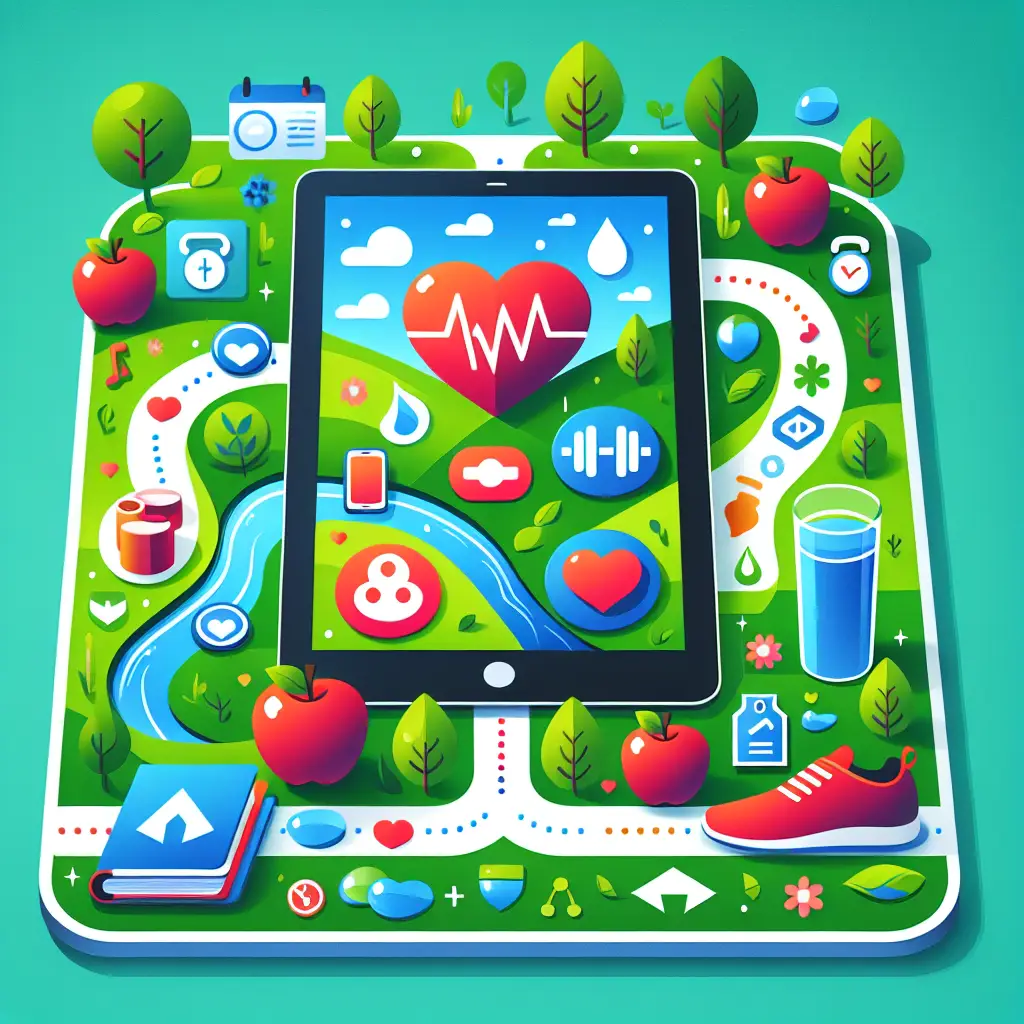With the advent of technology, the health and wellness industry is evolving significantly. The proliferation of smartphones and wearables has led to the surge of health and wellness apps. These applications provide unprecedented access to expert guidance, resources, data tracking, and personalized advice tailored to individual needs and goals. Every facet of health from diet and nutrition, fitness, sleep monitoring, mental wellness, prescription adherence to chronic disease management is now within the palm of your hand. However, with thousands of health and wellness apps available, it can be overwhelming to find one that seems best for you. This article will guide you through navigating the landscape of health and wellness apps.
First, let’s take a look at the types of health and wellness apps available in the market. The vast range of options covers various aspects of wellness:
1. Fitness and Exercise Apps: These include training guides, step counters, personalized workout plans, and sleep trackers.
2. Nutritional Apps: These apps focus on diet plans, calorie counters, meal planning, and recipes.
3. Meditation and Mindfulness Apps: These are aimed at reducing stress, improving relaxation, mental health, and promoting better sleep.
4. Telehealth Apps: Offering online consultations, appointment scheduling, and remote patient monitoring.
5. Disease Management and Medication Reminder apps: Designed for managing specific conditions like diabetes, high blood pressure, asthma, etc., and to remind users to take their medications on schedule.
6. Woman’s Health Apps: Covering menstrual tracking, fertility monitoring, pregnancy, and parenting tips.
When choosing an app, it’s crucial to consider the functionality and reliability. Here are some points to contemplate:
– Accuracy and Credibility: Assess their claims against evidence-based practices and medical guidelines. The source of the information provided should be cited and be from a reliable source. Apps that have health professionals involved in their design and content are more likely to be trustworthy.
– User Experience: The app should be user-friendly, with easy navigation, clear instructions, and minimal bugs or crashes. Reading app reviews and ratings can give you an insight into other people’s experiences.
– Data Privacy: Due to the sensitive nature of health data, check the app’s privacy policy to ensure they adhere to data protection laws and do not share your information without consent.
– Smartwatch Compatibility: Check if the app can be synchronized with your smartwatch for seamless health and activity tracking.
Fitness and exercise apps are among the most popular types of wellness apps. They offer workout tutorials, exercise plans, and physical activity tracking. Examples of leading apps in this field include MyFitnessPal and Nike Training Club, featuring customizable programs across various fitness levels.
On the other hand, nutrition-focused apps offer calorie counting features, dietary plans, and monitor your nutritional input. MyFitnessPal also falls into this category, along with others like Fooducate, and Noom, which emphasizes sustained weight loss through behavior change.
Apps focusing on mindfulness and meditation, such as Headspace and Calm, have gained popularity with their guided meditations, relaxing soundtracks, sleep stories, and breathing exercises. These are especially handy in our increasingly hectic lifestyle, as they encourage regular mental health breaks.
Telehealth apps like Teladoc and Doctor on Demand have soared in popularity, especially during the pandemic. These apps enable appointments with healthcare professionals without leaving home. Similarly, disease management and medication reminder apps allow users to self-manage their conditions and medications effectively.
While chasing fitness goals, it’s essential not to neglect the indispensable aspect of women’s health which includes menstrual tracking, fertility monitoring, and pregnancy apps. Notable ones include Glow, and Flo that provide personalized ovulation, period predictions and health insights.
In conclusion, the increasing ubiquity and variety of health and wellness apps provide limitless opportunities for users to take control of their wellbeing. The right app must align with your health needs and objectives, provide accurate and reliable information, ensure your data privacy, offer seamless syncing with your wearable devices and offer a satisfactory user experience. Before starting to use an app, consult with a healthcare professional to ensure that the regimen aligns with your current health needs and future fitness goals. Always remember, while wellness apps are beneficial, they are not a replacement for professional medical advice, diagnosis, or treatment. They are tools that, when used correctly, can positively supplement your overall health and wellness journey.
Share this content:
